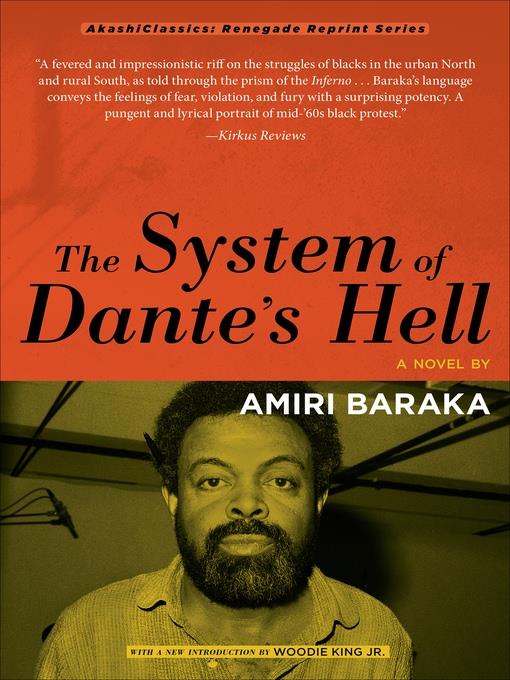
The System of Dante's Hell
A Novel
کتاب های مرتبط
- اطلاعات
- نقد و بررسی
- دیدگاه کاربران
نقد و بررسی

November 1, 2015
A fevered and impressionistic riff on the struggles of blacks in the urban North and rural South, as told through the prism of The Inferno. First published in 1965 under the name LeRoi Jones, the first novel by Baraka (1934-2014) is roughly the story of the narrator as he travels through Newark and eventually lands in Louisiana, where he's stationed in the Army. But though there are interactions, relationships, conflicts, and reckonings, plot details are beside the point here--the novel lives in its language, which is often abstracted but conveys a jazzy, street-wise intensity. ("City is gluttony. Mind you! The sparks hiss and sun drips on leaves.") The narrator moves from interior monologue, lamenting his struggles as a black man ("The black Job. Mind gone. Head lost."), to sketches of friends and lovers both male and female, though love is mostly conflict (one chapter, told in dialogue, depicts a rape). The narrative defogger snaps on in the final chapter, revealing a harrowing portrait of a drunken evening off base that devolves into a brutal beating that leaves the narrator raging at his sense of masculinity as well as the degradations of racism. Baraka's goal wasn't so much to rework Dante (though the book includes a chart of hell's levels) as it was to argue for hell as a living concept for African-Americans in the 1960s. The influence of Camus' notion that hell is other people is plain, but the torments placed on oneself are paramount too: in an afterword, Baraka notes the "torture of being the unseen object, and, the constantly observed subject." Other writers addressed race more directly, but for all its linguistic slipperiness, Baraka's language conveys the feelings of fear, violation, and fury with a surprising potency. A pungent and lyrical portrait of mid-'60s black protest.
COPYRIGHT(2015) Kirkus Reviews, ALL RIGHTS RESERVED.

























دیدگاه کاربران